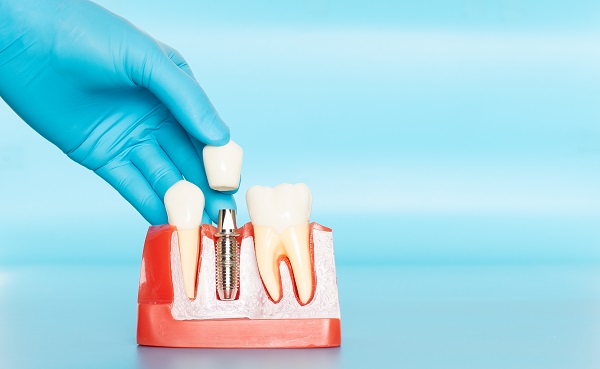Am I a Candidate for Dental Implants?

Dental implants can prevent problems resulting from tooth loss. Some people need these restorations because they do not want to use unstable, removable tooth replacements. Others want to have a natural look. Finding out your eligibility for this treatment is crucial in achieving your dental health goals. If you want to know if you are a good candidate for dental implants, here are the details.
Non-smoker
Smokers can still get dental implants. The smoking individual needs to know how harmful this habit is during and after the procedure. Tobacco smoking stains the teeth and contributes to gum disease. It can also prevent proper blood oxygenation and circulation. This habit tends to slow down the healing process during and after the surgery. It may cause the dental implants to fail.
A non-smoking individual is a good candidate for getting dental implants. The absence of tobacco in the blood will allow faster healing and successful osseointegration. A person who smokes must quit smoking at least two weeks before and two weeks after the implant procedure. This also applies to those who chew tobacco.
Healthy jawbone
A good candidate for dental implants has healthy jawbones. Having a strong jawbone can help these restorations stabilize better. It can help the patient bite, speak, laugh, and chew with comfort. A thin jawbone can result in unsuccessful osseointegration. This may result in implant loosening because of biting or chewing.
Some people with thin upper jawbones will need a sinus lift first before getting implants. This pre-implant surgery procedure will help protect the sinus cavities. It will also provide more anchorage for the titanium rods. A sinus lift will help thicken the foundation for the implants.
Other people with reduced bone mass in the lower jawbone will need a bone graft procedure. Tooth loss tends to result in jawbone loss. The absence of tooth roots leaves the jawbone without any stimulation. The body does not send nutrients to the jaw anymore. That is why the jaw shrinks and thins out.
A sinus lift and bone graft will need a piece of healthy bone. The dentist will take this healthy bone from the patient’s body. Cutting into the gum tissue is necessary. Placing the bone against the thin jawbone will follow. Then, stitching back the gum tissue over the jawbone will help the healthy bone fuse with the thinned-out bone. The healing must complete first before the dentist can start placing the dental implants.
Healthy gums
An ideal candidate for dental implants must have healthy gums. This means the gum line must not recede at all. Gum disease should not be present as well. The dentist will examine the patient’s gums well to determine the patient’s gum health.
A person with gum issues must receive treatment first. Receding gums must have gum grafts to support the teeth and strengthen the gum tissue. Complete healing must take place first. This may delay getting the dental implants, but this procedure will improve the look and the stability of the restorations.
Patience with the procedure
Getting dental implants takes time. Healing and recovery can take four to 12 months. Knowing the procedure before it starts can help the patient understand the type of commitment it needs. Being open to a possible dental extraction or bone graft can also make the procedure easier to deal with. These preparatory procedures can add to the time it needs for the patient to get dental implants.
Good oral care practices
Those who want to get dental implants must practice good oral care. Caring for dental implants needs extra effort. Flossing and brushing every day can remove plaque and food particles. Using an antibacterial mouthwash can help remove remaining bacteria from difficult areas. Routine dental checks can also help extend the life of these implants for decades.
Mild bruxism
Bruxism or teeth grinding affects many people. Some of them have severe bruxism, which could destroy dental restorations. Dental crowns will not last long in these patients. People with mild teeth grinding can get dental implants. The dentist may need to recommend bruxism protectors. This oral device can shield the implants from damage and wear.
You can get dental implants if you have good dental and general health
You are a good candidate for getting dental implants if you have good blood oxygenation and circulation. Having healthy jawbones and gum tissue also makes you an ideal recipient of these restorations. Learning to change some habits and getting the right treatments can increase your eligibility for getting implants. Your dentist can perform a complete dental check to see if you can get these teeth replacements.
Are you considering getting dental implants in the Kennewick area? Get more information at https://www.gledhilldental.com.
Check out what others are saying about our dental services on Yelp: Dental Implants in Kennewick, WA.
Related Posts
Dental implants provide a durable and natural-looking solution for missing teeth, but they do not work on their own. An implant crown serves as the final step in this process, completing the restoration and restoring smile function, appearance, and confidence. They mimic the appearance and strength of natural teeth to integrate with the rest of…
A dental implants is widely considered the tooth replacement solution that most closely resembles a natural tooth in durability, functionality, and appearance. However, like natural teeth, dental implants require diligent and consistent care to ensure longevity. Incorporating proper dental implant care into your oral hygiene routine can prevent complications and keep your smile healthy for…
Full mouth dental implants are an option that many patients choose when they need to replace their missing teeth. Our smile is the first impression we have when meeting a new person. We all want that impression to be warm and welcoming. When our smile is somewhat imperfect, we tend to lack confidence and feel…
Dental implant surgery can bring back your stunning smile. Tooth loss makes eating, speaking, and even smiling difficult. It affects a person’s self-esteem. Getting implants can make you feel good about yourself again. Here are the details on how a dental implant can help you smile confidently again.People who use removable restorations often complain about…


